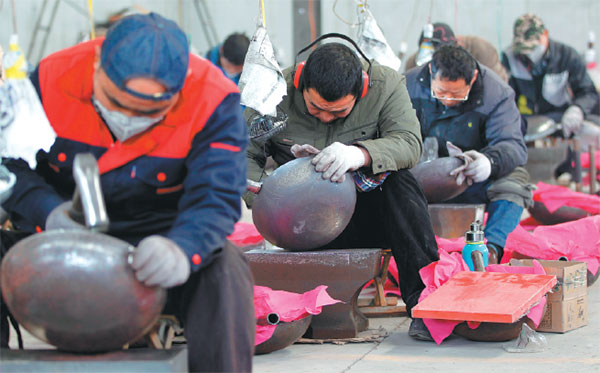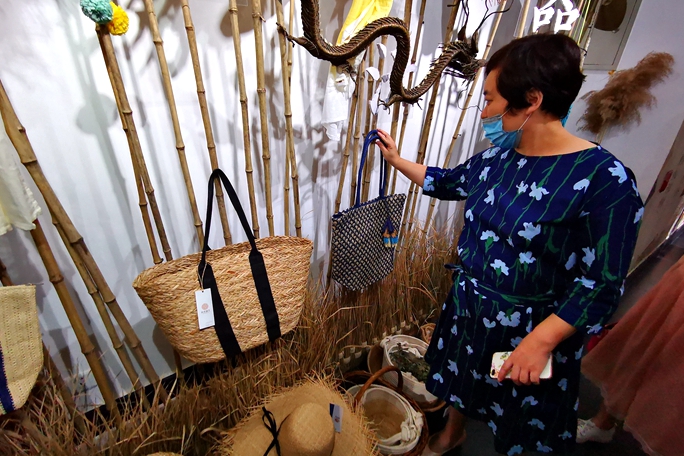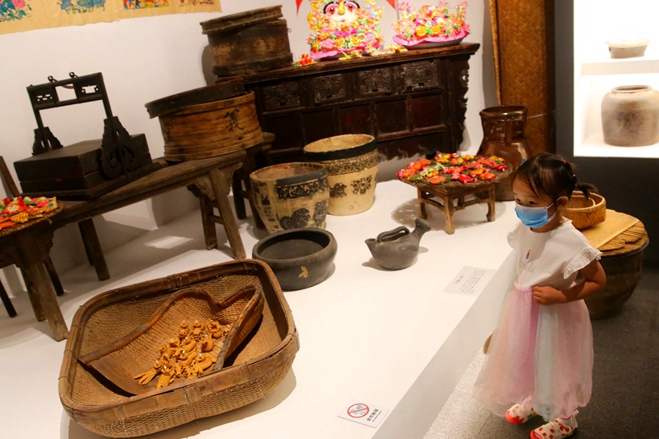A Bite of China forges new wok stars
A handcrafted iron wok has become a must-have item for many people after it was featured in a popular TV documentary, sparking the industry to cultivate more young craftsmen to meet the booming demand.
A Bite of China, which shows the relationship between food and people in Chinese culture, returned for its third season on China Central Television on Feb 19 during Spring Festival.
The first episode focused on cookware and featured a brand of iron wok that is handmade in Zhangqiu district in Jinan, Shandong province. The show gave a detailed explanation of how a wok is made in 12 steps, including being hammered 36,000 times to make its bottom like a mirror.
|
Craftsmen hammer out iron woks on Wednesday in Zhangqiu district, Jinan, Shandong province. The woks, which have boomed in popularity since they were featured on the TV show A Bite of China last month, are made using 12 steps. Chen Zebing / China Daily |
Liu Zimu, 40, who runs the wok factory that appeared in the documentary, said that only 10 minutes after the first episode was broadcast, his business had sold its complete stock of nearly 2,000 pans.
"In less than 10 days, hundreds of thousands of orders rolled in," he said. "Currently, we have about 50 craftsmen producing a little over 100 pans a day. It'd take us two years to fill the orders we've received."
Liu said iron woks normally run from 339 to 1,000 yuan ($53.60 to $158), while one made by a seasoned master is 1,299 yuan.
On the Tmall online marketplace, sales of Zhangqiu woks have increased by 6,000 times since the broadcast.
The overwhelming demand caused Liu to close his online store on Feb 23. "I'm glad to see our products are selling well, but I'm concerned about the irrational market," he said.
It's not easy to produce an iron wok, he said. A total of 18 levels of heat are used under strict quality controls, while the craftsmen must withstand high temperatures and lift heavy hammers weighing at least 7.5 kilograms.
"Fake products are inevitable when the market generates so much attention," Liu added. Zhangqiu pan-making culture has a history of more than 1,000 years. But there has been a shortage of qualified craftsmen and the industry has been threatened by the development of modern machines.

The traditional craft was once close to vanishing. The demand for high-quality products stoked by A Bite of China has shored up confidence for them to save and redevelop the industry.
"The craftsmen realized that they once were only blacksmiths, but now they have more pride in what they are doing," Liu said.
Liu and his two partners planned to recruit more young craftsmen as apprentices to enlarge the business and bring in fresh energy.
Wu Han, a 26-year-old native of Jining, said he was fortunate to join four years ago and become trained so he could earn a better living.
Authorities have stepped in to regulate the market by formulating an industry standard and branding the Zhangqiu iron wok. The district's market supervision bureau said on Tuesday that an industry association should be established.
The boom also brought new challenges to artisans who are in demand. Niu Qisheng, a 72-year-old hammersmith from Zhangqiu's village of Hezhuang, who has been pounding iron for more than 50 years, saw a flood of preorders for 2,000 woks, with some customers having to wait until March 2019.
"I treat it like artisan craftsmanship being passed down to keep the skill alive, not just striking iron," he said.
(China Daily 03/01/2018 page3)


 Shandong Culture and Tourism Consumption Season
Shandong Culture and Tourism Consumption Season Culture, tourism sectors pick up in Shandong as epidemic wanes
Culture, tourism sectors pick up in Shandong as epidemic wanes

